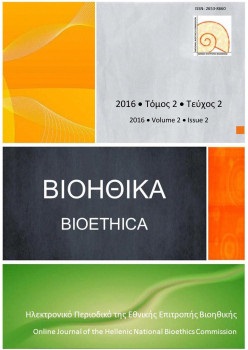Neuroscience and criminal law: promises and limitations for the assessment of criminal responsibility

Abstract
In recent years, an explosion of interest in neuroscience has led to the development of "Neuro-law," a new multidisciplinary field of knowledge whose aim is to examine the impact and role of neuroscientific findings in legal proceedings. Neuroscientific evidence is increasingly being used in US and European courts in criminal trials, as part of psychiatric testimony, nourishing the debate about the legal implications of brain research in psychiatric-legal settings.
In this paper, we aim to examine the impact of Neuroscientific evidence in the assessment of criminal responsibility. We start with a brief historical survey of the relation between brain sciences and criminal law. We then present two criminal cases in the context of which neuroimaging techniques were introduced as evidence of diminished responsibility or irresponsibility and continue with a presentation of some significant limitations and difficulties that neuroscience faces in the assessment of penal responsibility. These limitations are scientific, legal but also of philosophical and conceptual nature.
We conclude that addressing moral or legal responsibility might depend on scientific data, but requires entry to very different conceptual domains. The legal system cannot delegate to another field, scientific or otherwise, the ascription of legal meaning. Neuroscientific data, however accurate and reliable they may become in the future, cannot contribute to the assessment of criminal responsibility, unless they are contextualised and completed -or even confronted- with data collected on other levels of analysis, in particular on a psychological, anamnestic, sociological and economic level. Neurosciences, as sciences, can offer functioning and biological models of behaviours, while the assignment of responsibility is a normative issue. Although neuroscientific evidence can provide assistance in the evaluation of penal responsibility by introducing new determinisms in the behavioural analysis of offenders with mental disturbances, it does not dispense with the need to define the limits of responsibility and irresponsibility of the accused. This analysis, while it needs to take account of social, moral and political factors - in addition to elements contributed by experts - ultimately belongs to the legal sphere.
Article Details
- How to Cite
-
Γκότση (Georgia-Martha Gkotsi) Γ.-Μ. (2016). Neuroscience and criminal law: promises and limitations for the assessment of criminal responsibility. Bioethica, 2(2), 19–35. https://doi.org/10.12681/bioeth.19779
- Section
- Original Articles
Authors who publish with this journal agree to the following terms:
- Authors retain copyright and grant the journal right of first publication with the work simultaneously licensed under a Creative Commons Attribution CC BY 4.0 License, which allows for immediate free access to the work and permits any user to read, download, copy, distribute, print, search, or link to the full texts of articles, crawl them for indexing, pass them as data to software, or use them for any other lawful purpose. Appropriate credit must be given by citing the author(s) and the original publication in this journal.
- Authors are able to enter into separate, additional contractual arrangements for the non-exclusive distribution of the journal's published version of the work (e.g. post it to an institutional repository or publish it in a book), with an acknowledgement of its initial publication in this journal.
We encourage authors to deposit their articles, as well as data underlying the publications, in institutional and/or other appropriate subject repositories.
Bioethica permits and encourages authors to archive the final publication pdf in institutional (e.g. the repository of the National Hellenic Research Foundation) or other appropriate subject repositories (e.g. SSOAR repository for social sciences), in compliance with institutional and/or funder open access policies, after publication in the BIOETHICA. Authors must provide bibliographic details that credit publication in the journal, as well as related funding details (when applicable).
Lists of institutional and other subject-based academic open access repositories can be found listed by country at the registry http://opendoar.org/countrylist.php
If your institution does not possess a repository you may deposit a copy of your paper at no cost with www.zenodo.org , the repository supported for open access research in the EU by the European Commission, through the project OpenAIRE (www.openaire.eu )


